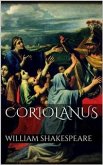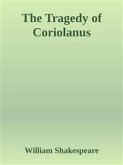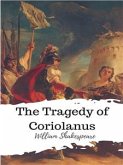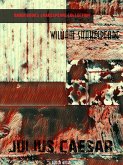Coriolanus by William Shakespeare - Coriolanus (/kɒriəˈleɪnəs/ or /-ˈlɑː-/) is a tragedy by William Shakespeare, believed to have been written between 1605 and 1608. The play is based on the life of the legendary Roman leader Caius Marcius Coriolanus. Shakespeare worked on it during the same years he wrote Antony and Cleopatra, making them the last two tragedies written by him.
Coriolanus is the name given to a Roman general after his military feats against the Volscians at Corioli. Following his success he seeks to be consul, but his disdain for the plebeians and the mutual hostility of the tribunes lead to his banishment from Rome. He presents himself to the Volscians, then leads them against Rome.
The play opens in Rome shortly after the expulsion of the Tarquin kings. There are riots in progress, after stores of grain were withheld from ordinary citizens. The rioters are particularly angry at Caius Marcius, a brilliant Roman general whom they blame for the loss of their grain.
The rioters encounter a patrician named Menenius Agrippa, as well as Caius Marcius himself. Menenius tries to calm the rioters, while Marcius is openly contemptuous, and says that the plebeians were not worthy of the grain because of their lack of military service. Two of the tribunes of Rome, Brutus and Sicinius, privately denounce Marcius. He leaves Rome after news arrives that a Volscian army is in the field.
Coriolanus is the name given to a Roman general after his military feats against the Volscians at Corioli. Following his success he seeks to be consul, but his disdain for the plebeians and the mutual hostility of the tribunes lead to his banishment from Rome. He presents himself to the Volscians, then leads them against Rome.
The play opens in Rome shortly after the expulsion of the Tarquin kings. There are riots in progress, after stores of grain were withheld from ordinary citizens. The rioters are particularly angry at Caius Marcius, a brilliant Roman general whom they blame for the loss of their grain.
The rioters encounter a patrician named Menenius Agrippa, as well as Caius Marcius himself. Menenius tries to calm the rioters, while Marcius is openly contemptuous, and says that the plebeians were not worthy of the grain because of their lack of military service. Two of the tribunes of Rome, Brutus and Sicinius, privately denounce Marcius. He leaves Rome after news arrives that a Volscian army is in the field.









